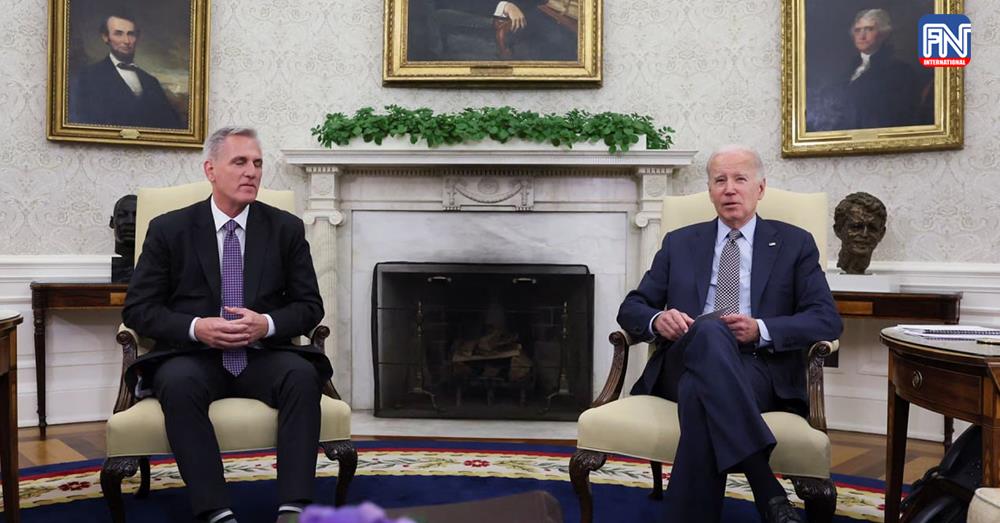WASHINGTON, May 22 (Reuters) - President Joe Biden and House Speaker Kevin McCarthy could not reach an agreement Monday on how to raise the U.S. government's $31.4 trillion debt ceiling with just 10 days before a possible default that could sink the U.S. economy, but vowed to keep talking.
The Democratic president and the top congressional Republican have struggled to make a deal, as McCarthy pressures the White House to agree to spending cuts in the federal budget that Biden considers "extreme," and the president pushes new taxes that Republicans have rejected.
Both sides stressed the need to avoid default with a bipartisan deal after Monday evening's meeting, however, and signaled that they'd be talking regularly in coming days.
A source familiar with the situation said that White House negotiators were returning to Capitol Hill on Monday night to resume talks.
"We reiterated once again that default is off the table and the only way to move forward is in good faith toward a bipartisan agreement," Biden said in a statement after the meeting, which he called "productive."
McCarthy told reporters after over an hour of talks with Biden that negotiators are "going to get together, work through the night" to try to find common ground.
"I believe we can still get there," McCarthy said. He is not willing to consider Biden's plan to cut the deficit by raising taxes on the wealthy and closing tax loopholes for the oil and pharmaceutical industries, he said, and is focused on reducing spending in the 2024 federal budget.
Democrats and Republicans have until June 1 to increase the government's self-borrowing limit or trigger an unprecedented debt default that economists warn could bring on a recession.
Treasury Secretary Janet Yellen on Monday offered a sobering reminder of how little time is left, saying the earliest estimated default date remains June 1 and that it is "highly likely" that Treasury will no longer be able to pay all government obligations by early June if the debt ceiling is not raised.
Republican Representative Patrick McHenry, who was in the White House meeting, ruled out any partial budget agreement to raise the debt ceiling. "No one's going to agree to anything until we have a finalized deal," he said.
He said the tone in the Biden meeting was the most positive yet.
Any deal to raise the limit must pass both chambers of Congress, and therefore hinges on bipartisan support. McCarthy's Republicans control the House 222-213, while Biden's Democrats hold the Senate 51-49.
A failure to lift the debt ceiling would trigger a default that would shake financial markets and drive interest rates higher on everything from car payments to credit cards.
U.S. markets rose on Monday as investors awaited updates on the negotiations.
It will take several days to move legislation through Congress if and when Biden and McCarthy come to an agreement. McCarthy said that a deal must be reached this week for it to pass Congress and be signed into law by Biden in time to avoid default.
